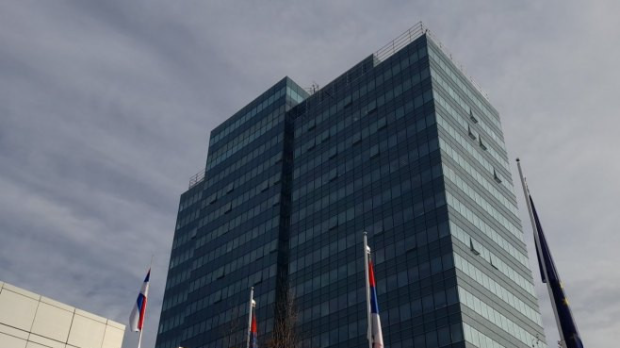The Srebrenica Resolution Debate Intensifies
UN drafts a resolution to memorialize the Srebrenica genocide, sparking political tensions and concerns over regional stability in the Balkans.
Published May 05, 2024 - 00:05am

Image recovered from rts.rs
The proposed resolution by the United Nations General Assembly on definitively recognizing the Srebrenica massacre as a genocide has stirred significant controversy across different nations. With conflicting stances, this issue has pried open deep-seated ethnic and political divisions, threatening to unsettle peace that has held since the Dayton Accords.
In a report, The Government of the Republika Srpska stated acceptance of the resolution would reward an undisciplined ambassador for disrespecting the Constitution, misrepresenting Bosnia and Herzegovina’s (BiH) official stance, and further damaging BiH's constitutional order. Serb Republic's government argues that many other countries support the resolution because they were misled into believing BiH endorsed it, as articulated by the BiH ambassador to the UN. The report underlines that BiH's Collective Presidency never sanctioned advocacy for this resolution. Germany's proposed UN resolution, which is endorsed by Rwanda, insists on equating the genocide in Srebrenica and the Holocaust, despite criticisms pointing out that only military-capable men were targeted in Srebrenica, unlike the indiscriminate nature of the Holocaust.
Russia has spoken out against the resolution, with UN representative Vassily Nebenzia calling it one-sided and unsupported by the declared aim of immortalizing the tragedy's victims. This opposition is mirrored in Serbia and the Republika Srpska.
Meanwhile, complicating the geopolitics of the Balkans, envoys like Serbia's ambassador Marko Đurić argue in the UN Security Council for equal treatment and justice for all victims of war, underscoring Serbian officials’ homage to victims in Srebrenica. He accentuates that the resolution was drafted without comprehensive Balkan consultations and hints at its motivation being Serbian defamation rather than genuine concern for all victims. Đurić also voices apprehensions about the resolution exacerbating divides and sowing seeds of enmity.
Adding to these intricate dynamics, the Balkans face looming instability per insights from international security analysts. With divisive sectarian tendencies fuelled by external influences and fragile political structures, Republika Srpska has recently taken steps challenging Bosnia and Herzegovina’s state sovereignty, such as passing a new electoral law and setting foundations for independence referendums. The UN's Srebrenica resolution hence rests not just as a memory of a tragic event, but as a potential flashpoint in an area already tense with nationalist sentiments and ethnic cleavages, with broad implications for regional peace and international diplomacy.
The debate over the UN's proposed resolution to recognize the Srebrenica massacre as genocide is not just about historical interpretation, but how it shapes the present and future political landscape in Bosnia and Herzegovina and the broader region. International bodies, including the International Criminal Tribunal for the former Yugoslavia (ICTY), have previously labeled the mass killing of Bosniak Muslims by Bosnian Serb forces in July 1995 as genocide. However, local interpretations within Bosnia and the position of the Republika Srpska often contradict these findings.
This dichotomy in views reflects a Balkan struggle to reconcile with the past. While the resolution aims to solidify global acknowledgment of the massacre as genocide, gaining such international consensus is fraught with diplomatic hurdles. Entities like Republika Srpska view it as an assault on their identity and narrative. For many Serbs, equating the Srebrenica atrocity to genocides of broader scope, such as the Holocaust, seems unjust and a distortion of the historical context of the Balkan conflicts.
At the heart of the matter is the multi-ethnic composition of Bosnia and Herzegovina, where collective memory is bifurcated along ethnic lines. This divide is not merely a reminiscence of the past; rather, it is a palpable force that shapes electoral politics, governance, and the potential for conflict or reconciliation. The Republika Srpska's recent steps to solidify its autonomy are a testament to the deep political and ethnic fissures that may yet destabilize the Balkan region.
On the international stage, the weight of Germany and Rwanda's backing adds gravitas to the genocide resolution, potentially influencing undecided nations. However, opposition from powerful actors such as Russia demonstrates the complexities of international diplomacy on human rights issues. Moscow's stance resonates with some Balkan political leaders, shaping a familiar narrative of external interference in regional affairs.
The unfolding situation presents a litmus test for the efficacy, impartiality, and impact of the United Nations regarding sensitive historical issues. As the debate continues, it becomes ever more apparent that the ultimate judgment on the resolution will have far-reaching consequences. Whether these will lead to heightened understanding, closure, and peace or deepen wounds and suspicions remains an unresolved question. This period is crucial, as eyes turn to the UN to see how it navigates these treacherous diplomatic waters and whether it can play a constructive role in a region still haunted by the ghosts of its tumultuous past.






